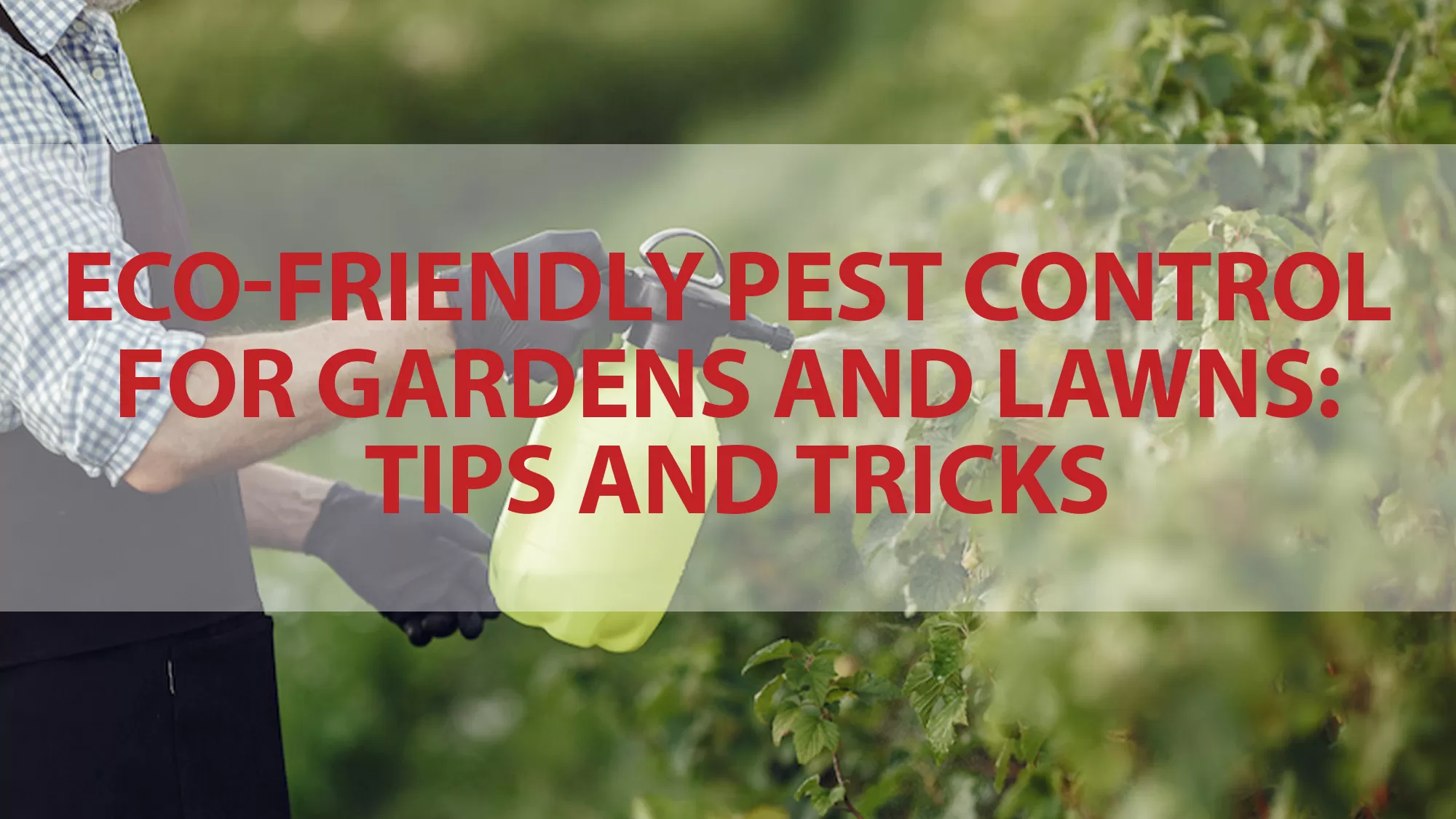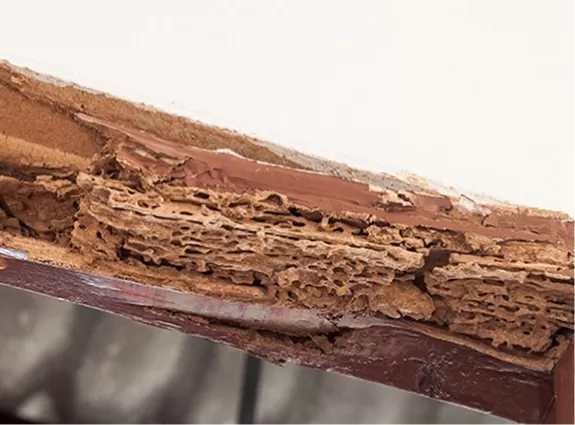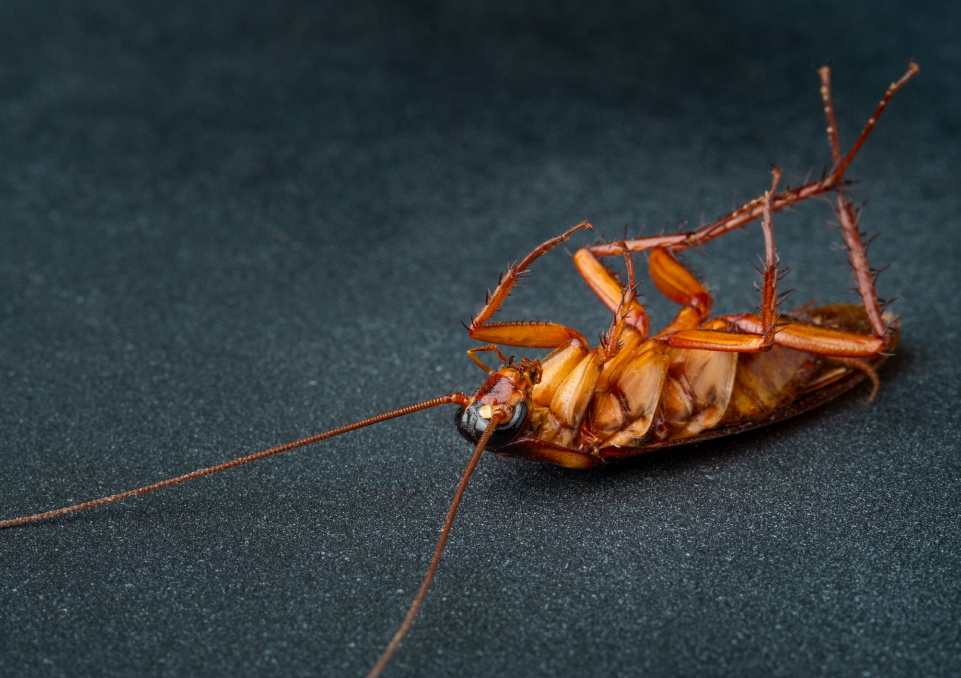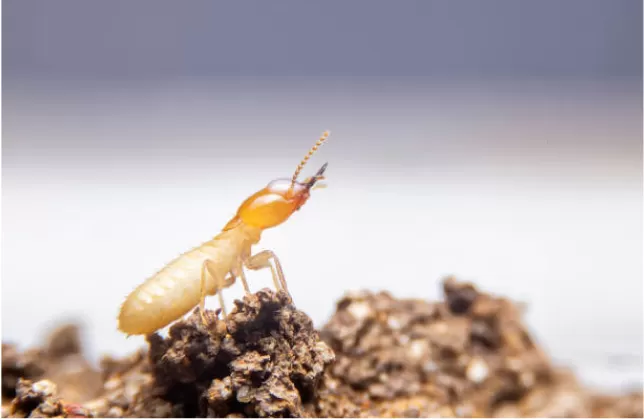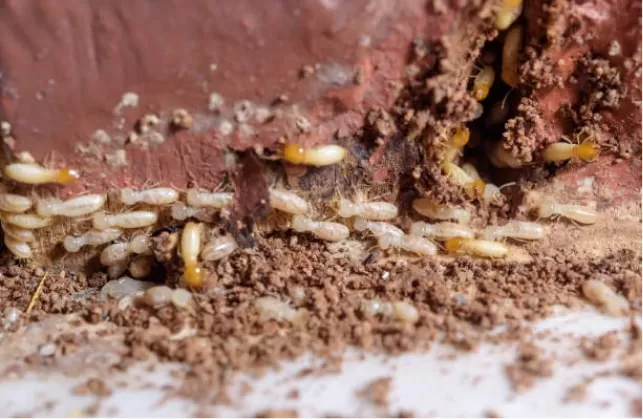Maintaining a beautiful garden and lawn can be rather challenging if pests invade the space frequently. Unfortunately, your garden may seem like a free buffet to many pests. These intruders are usually very quiet, and you might not at first even realise that pests have been raiding your garden and lawn.
You might find brown spots on apples or notice tiny white bugs flying around tomato plants. Some pests will even nibble on leaves, fruits, and vegetables and then leave half-eaten food as proof of their invasion.
No matter how you first discover the existence of a pest problem in your garden, it should never be your first reaction to make use of pesticides. Try instead to use organic methods to ward off pests from your garden. In this article, we have shared some eco-friendly pest management tips and tricks for your garden.
Eco-Friendly Pest Management Tips for Gardens and Lawns
Attract Beneficial Insects and Animals to Your Garden
Do not be alarmed as soon as you see a pest in your garden or lawn. Not all insects are harmful to your garden. Instead, insects like damselbugs and ladybugs may even be beneficial for the garden. Ladybugs have the ability to regulate the aphid population, parasitic wasps manage the population of caterpillars, and bats play a role in controlling mosquito populations.
These beneficial insects prey on harmful creatures that attack your plants, fruits, and vegetables. So, attracting them to the garden is an excellent form of organic pest control.
Beyond just good insects, having certain animals around can also prove as a good pest control measure. Ducks and chickens, for example, will attack slugs. However, even though these animals can protect your garden from other pests, they themselves can also damage the plants. So, do not give them direct access to the plants you are nurturing.
Plant Pest-resistant, Pest-Deterrent, and Companion Plants
Another great way to naturally keep garden pests away is to choose pest-resistant plants. Butternut or royal acorn are squash varieties that will not attract any pests. You can also find corn, soybeans, and potatoes in pest-resistant types, which is a welcome development.
Even though choosing such plants will not eliminate all your pest problems, it is a good start toward a pest-free garden. You will have to deal with fewer pest problems and will also have healthier crops.
You can also plant insect-deterrent plants like chrysanthemums and marigolds. Coriander, basil, and several other herbs can repel insects like flies, mites, and aphids.
To further enforce a pest–free zone, you can plant companion plants. Pair together plants which can help deter each other’s culprit pests. Crops like asparagus and tomato are great pairs for this very reason. Overall, you can strike a healthy balance of bugs by having a good variety of plants in your garden.
Spread Diatomaceous Earth All Around Your Garden
Diatomaceous earth is a natural pest control method. The ingredient is not harmful to humans but can be lethal for pests. Diatomaceous earth absorbs the waxes and oils from the bodies of some insects and arthropods. It begins to dehydrate them and results in death.
To get the benefits of this eco-friendly pest management technique, sprinkle some diatomaceous all over the soil. Also, put some of it on plants. Water the plants first before dusting some diatomaceous earth on them. Contact with the powder will dehydrate and kill pests. However, you do not have to be worried about this as there will be no effect on you, your family, or the plants.
Protect Plants with Physical Barriers
Rodents, gophers, moles, rabbits, and other animals can invade your yard. To prevent them from entering and destroying your garden, you can stop their access to your landscape. Build physical barriers around problem areas and build fences all around the garden.
Keep the local diggers in mind and build the barriers deep. An excellent way to further protect your vegetables and fruits is to build greenhouses for them.
You can employ physical barriers to protect the plants and garden produce safe from tiny bugs. Use floating row covers to protect young plants. Cover bigger plants with fabric and pin the material to the ground to keep pests from entering. Remember to remove these covers when plants are flowering to aid insect pollination.
Remove Pests Manually
For easily noticeable pests, you can remove them by hand. Handpicking works best for pests like snails and slugs in small gardens. All you have to do is look for such pests and remove them by hand.
Although manually picking them off the plants can be time-consuming, most people find this to be an effective way to get rid of pests.
Taking time out to protect your plants from pests can give you rewards in the form of healthy plants and produce. In a pest-free environment, seedlings will grow into healthy plants and also bear healthy fruits and veggies.
Use Organic Pesticides
Eco-friendly pest controls are usually great for pest prevention but may not always be effective against an existing pest issue. To control pest infestation effectively, you can use chemical-free and organic choices.
Simple home remedies may be all you need. You will be surprised how simple soap water can kill small insects like mealybugs, aphids, and spider mites. Garlic and onion spray, salt spray, and neem oil spray are some other organic pesticides that can combat garden pests.
Horticultural oils are also a great alternative. They can control bug infestations without affecting plants. However, pesticides can affect beneficial bugs along with the targeted pest.
Conclusion
If you are used to less natural pest control methods, it is time to shift to an eco-friendly approach. Eco-friendly pest management is equally effective and has no negative impact on the plants. Plus, organic pest control techniques are safe for you and your family.
Selecting eco-friendly methods like biological controls, handpicking, and physical barriers are all great ways to prevent and control pest populations. For better results, you can also spread some diatomaceous earth around your garden.
If you want to enjoy a chemical-free environment, you should spray some diatomaceous earth over both the soil and the plants. Moreover, along with using homemade and organic pesticides to deter and kill unwanted pests, you can also contact a pest control company that understands and uses organic pest control measures. The professionals would be able to gauge the pest problem correctly and advise the next course of action to ensure you have a pest-free garden.

